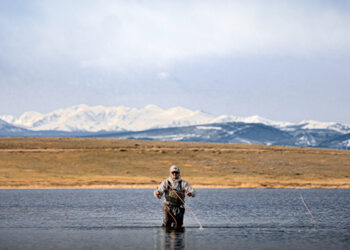Due to the potentially hazardous nature of aquatics, it’s imperative for a recreation department to expertly train its staff and put that group in a position to succeed.
For Cody Demas, the aquatics director at the University of Illinois, success comes from the combined effort and cooperation of every team member. “We need to work together and utilize each other’s strengths in order to be successful,” he said.
At the start of each semester, Demas and his team undergo rigorous amounts of training ahead of students’ arrival back on campus. Doing so ensures the staff understands every protocol and instinctively knows the proper response to an emergency situation.
“We conduct a very thorough three-hour training [session], covering a variety of topics and full emergency action plan (EAP) scenarios,” said Demas. “The student coordinators play a vital role in the planning of our all-staff trainings, as well as the execution.”
And the training doesn’t stop there. In order to prevent a drop-off in performance from his staff, Demas has his employees go through additional training throughout each semester. “In addition to our all-staff training sessions, we hold bi-weekly in-service training with our staff for one hour where we focus on five initiatives each session: CPR, first aid, water rescues, physical conditioning and teamwork,” said Demas.
The same can be said for any team — good performance starts at the top. Training your leaders properly is imperative, as it will have a trickle-down effect. What your leaders learn properly your staff will end up learning properly as well.
“Prior to our all-staff training, we hold a separate four-hour training with all of our head guards as our student coordinators take them through all aspects related to our EAP and facility-specific rescue responses,” said Demas. “We do this knowing our head guards are trained by our most senior staff on how to, one, effectively train themselves, and two, go about leading others through the same drill.”
Another priority is getting aquatics staff members the proper certifications — getting certified is necessary for the execution of safety protocols. Each position will likely require different levels of certification. As you move further up the ladder, the certifications become stricter. “The head lifeguards must have the aforementioned certifications and a Lifeguard Instructor certification is preferred, but not required,” he said.
When it comes to attracting new talent, outreach on your campus can be beneficial. “At the beginning of the fall semester, we held an event called Illini Frenzy that invited thousands of students and local businesses to our facility for giveaways, campus rec programming and a chance for students to kick off the school year with a social event,” he said, noting they pre-arranged several interview sessions to invite students to during the event.
Once you’ve found the right people, whether from a campus event or referral, the development of the staff is critical. It’s up to department leaders to find the best ways to manage the staff and teach them to be successful. “For example, it is not always necessary for us to lead a workshop on problem-solving or conflict management,” said Demas. “There are times you may have to take an unorthodox approach to completing set objectives.”
In some cases, the most effective way to manage is to not manage at all. “I’m a big proponent of seeking to hire the right people and then standing back and giving them the guidance and resources to do their job effectively,” said Demas.
But the most important practice in your department is open communication. “Taking the time to meet individually with lead members of your staff at the beginning and end of the semester is another tactic we have found to be highly successful in the midst of the semester-long daily grind of planning, organizing and managing a program,” said Demas. “It is during those times we are able to communicate positive and negative notions, assess morale, how to overcome challenges and set the bar for the future.”










